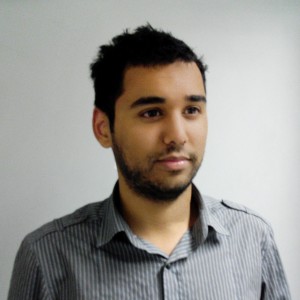Dr V ijay Chudasama graduated from University College London (UCL), 2008, where he worked on a novel, versatile approach for the synthesis of 2,4-substituted oxazoles under the tutelage of Dr. Jon Wilden. He received a number of awards/scholarships, including Science, Engineering and Technology (SET) Chemistry Student of the Year (2008) , Bader Prize (2008), Faculty of Mathematical and Physical Sciences Medal and Prize (2008), Tufnell Scholarship (2008), Dean’s list (2008), Franz Sondheimer Prize (2007), Charles Vernon Prize (2007), Jackson-Lewis Scholarship (2006), Christopher-Ingold Scholarship (2005, 2006, 2007) and AstraZeneca Chemistry Bursary (2004, 2005, 2006, 2007).
ijay Chudasama graduated from University College London (UCL), 2008, where he worked on a novel, versatile approach for the synthesis of 2,4-substituted oxazoles under the tutelage of Dr. Jon Wilden. He received a number of awards/scholarships, including Science, Engineering and Technology (SET) Chemistry Student of the Year (2008) , Bader Prize (2008), Faculty of Mathematical and Physical Sciences Medal and Prize (2008), Tufnell Scholarship (2008), Dean’s list (2008), Franz Sondheimer Prize (2007), Charles Vernon Prize (2007), Jackson-Lewis Scholarship (2006), Christopher-Ingold Scholarship (2005, 2006, 2007) and AstraZeneca Chemistry Bursary (2004, 2005, 2006, 2007).
Following his undergraduate studies, Dr Chudasama obtained his PhD (2011) at UCL working with both Prof. Stephen Caddick and Dr Richard Fitzmaurice on the use of aerobic aldehyde C-H activation for the construction of C-C and C-N bonds. He won a collection of awards/prizes: Ramsay Medal (2011), 1st Prize at Final Year Organic Chemistry and Chemical Biology PhD Presentation Competition (2011), Lilly Postgraduate Prize Day (2010), 1st Prize at UCL Chemistry Postgraduate Poster Competition (2010) and UCL Graduate School Research Scholarship (2008, 2009, 2010).
After his graduate work, Dr Chudasama took a year out to work in patent law, before returning to UCL to do a postdoctoral stay in the laboratories of Prof. Stephen Caddick and Dr Mark Smith where he turned his attention to developing novel reagents for cysteine and disulfide functionalisation. In 2013, he was highlighted by Scientific American to be one of 30 scientists, under 30 years old, across the world with promising prospects in Chemistry and selected to attend the 63rd Lindau Nobel Laurette Meeting.
In 2014, Dr Chudasama was awarded a prestigious Ramsay Fellowship in the field of Chemical Biology and was made Technical Director of biologicals company (ThioLogics), which is based on technology he is an inventor of (www.thiologics.com).
In 2015, Dr Chudasama was appointed to a lectureship at UCL following his being highlighted as a future leader in Science by Forbes magazine and the Royal Society of Chemistry.

